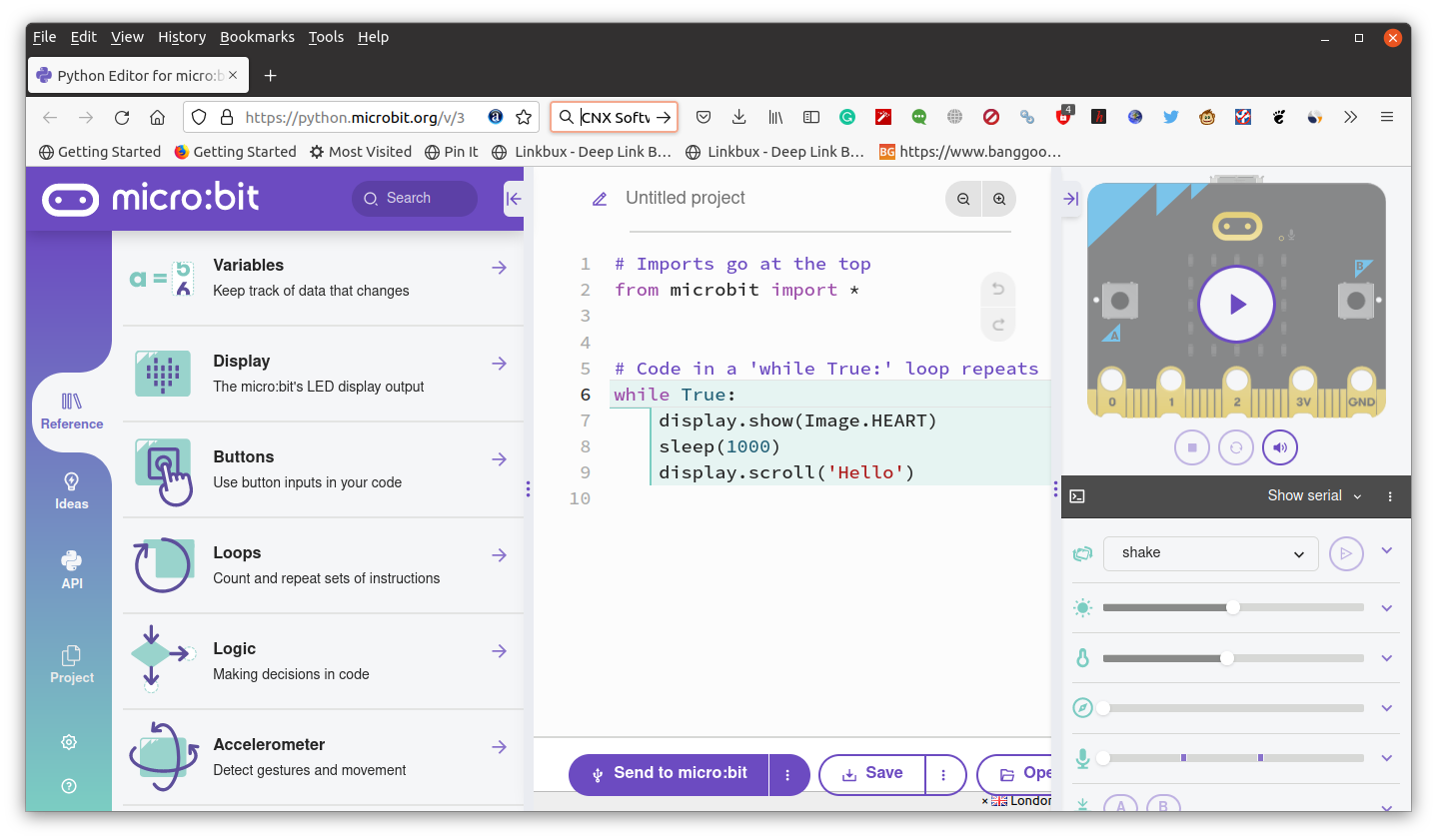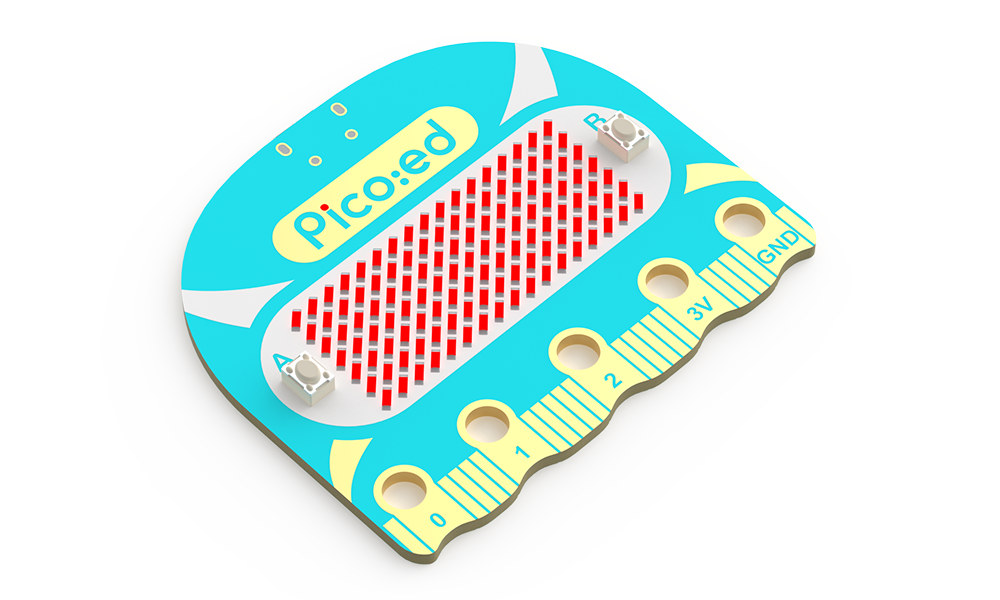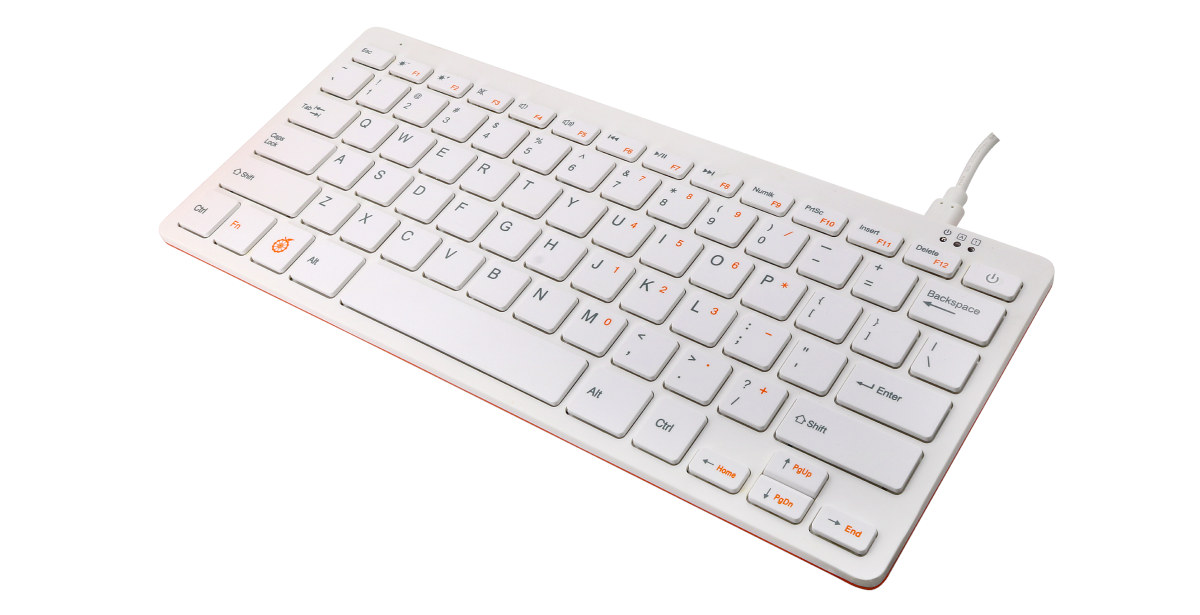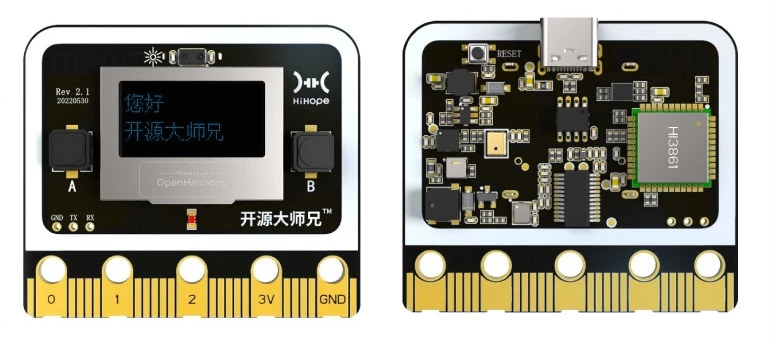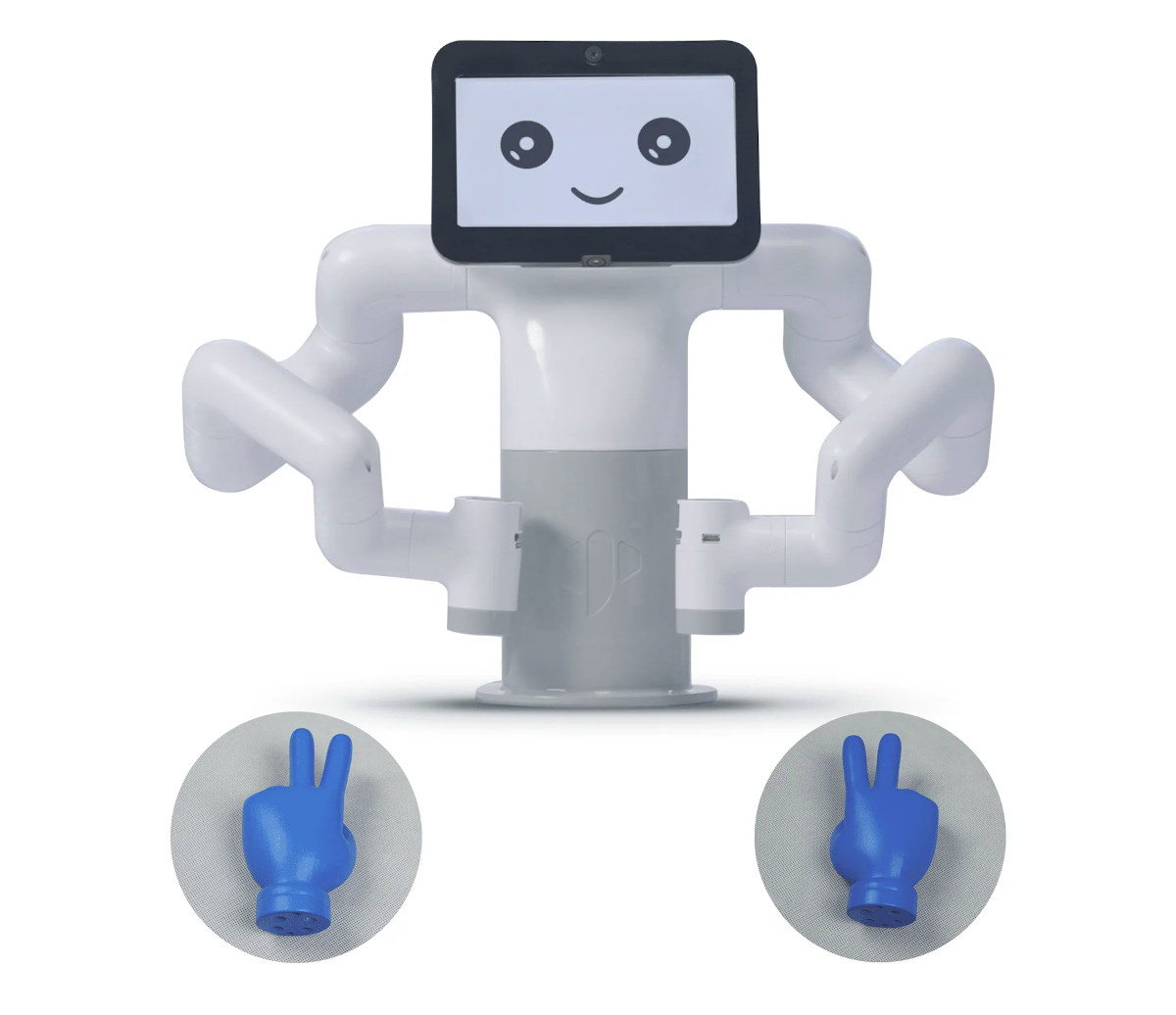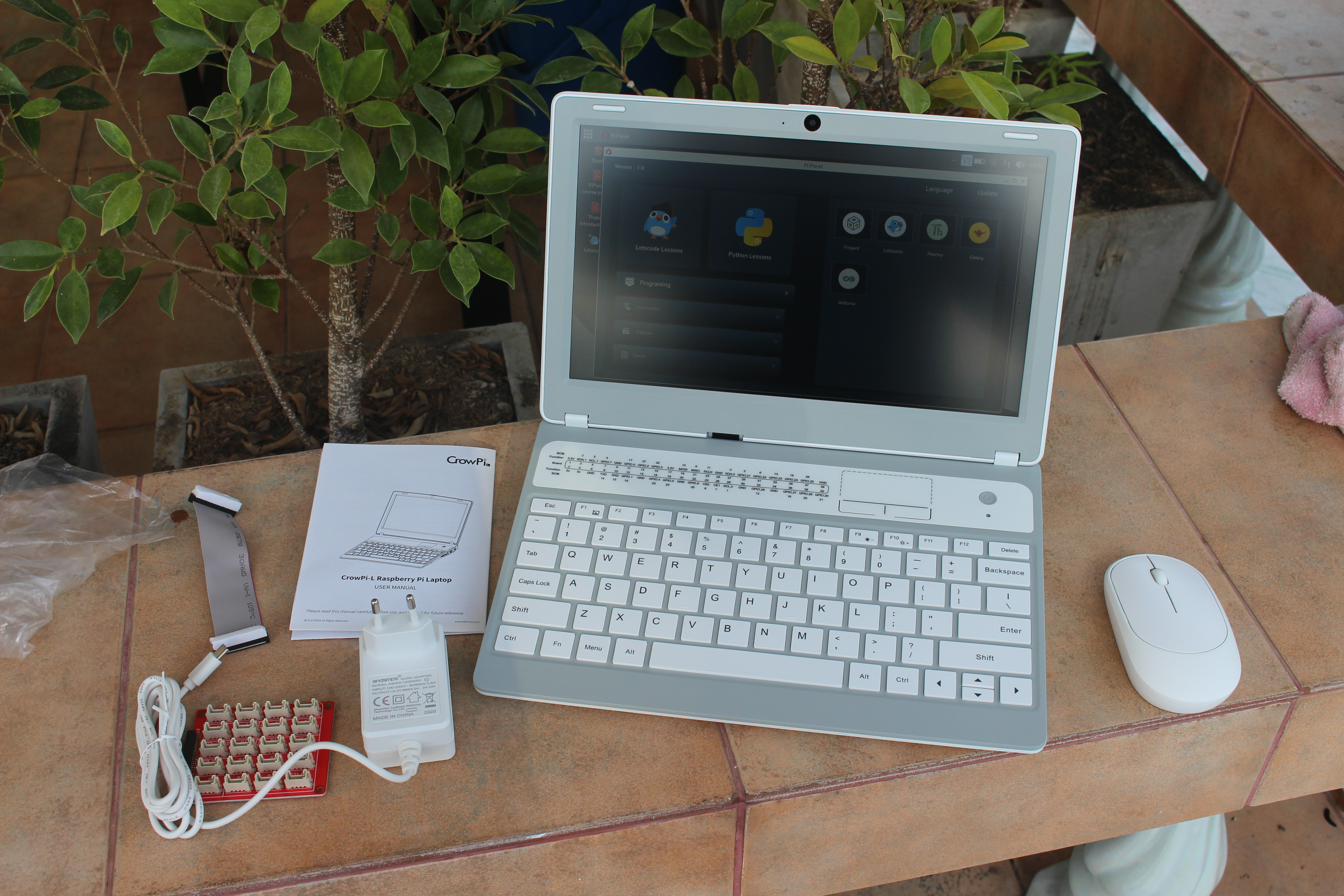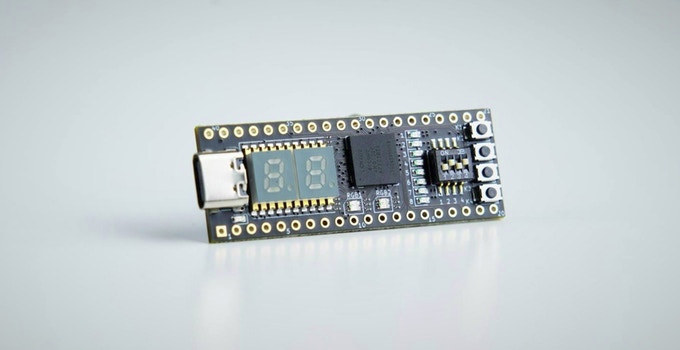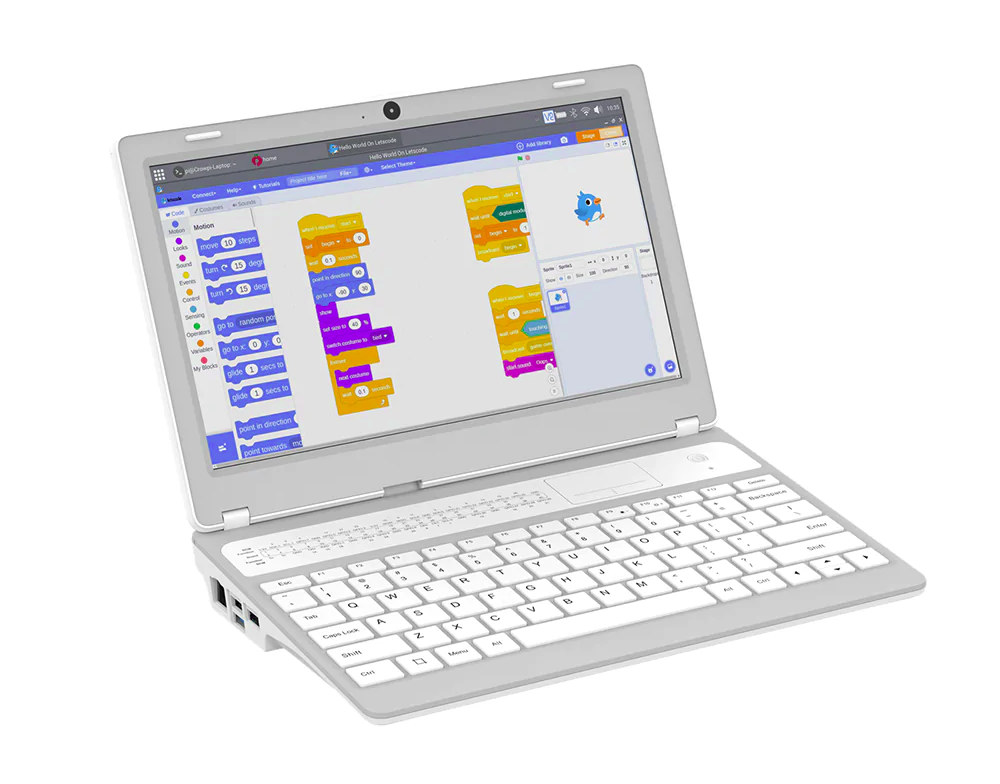There are already Python editors such as Thonny, but the BBC thought those were not good enough and released a new web-based Python editor specifically designed for the micro:bit education board targeting 11 to 14 years old pupils. The micro:bit Python editor includes drag and drop code examples, code structure & error highlighting, auto-complete feature, a simulator to test the code before uploading it to the micro:bit board, and a Quick ideas section to help pupils get started with projects. The BBC’s micro:bit Python editor works with both the micro:bit V1 and V2, but note the simulator shows a micro:bit V2, so if you are using the previous generation micro:bit, some code may work on the simulator but not on your micro:bit V2 board. For that reason, the BBC marked the code that only works on a micro:bit V2 with ‘V2’ in the Reference section. While the BCC is a […]
Raspberry Pi RP2040 gets into BBC Micro:bit lookalike board
ELECFREAKS Pico:ed V2 is a Raspberry Pi RP2040 board heavily inspired by the BBC Micro:bit with an edge connector exposing rings suitable for crocodile clips, a 17×7 LED matrix display, and designed for the classroom. We’ve seen several BBC Micro:bit clones – or rather adaptations – over the years with boards such as the SiFive Learn Inventor, Elecrow Mbits, and HiHope “Big Brother” board. The Pico:ed V2 adds to the list, and the main differences are that it is based on the Raspberry Pi RP2040 microcontroller instead, and does not come with wireless connectivity relying on a USB interface only. ELECFREAKS Pico:ed V2 specifications: MCU – Raspberry Pi RP2040 dual-core Cortex-M0+ microcontroller @ up to 133Mhz with 264kB of SRAM Storage – 2MB QSPI flash Display – 17×7 dot-matrix display USB – 1x micro USB 1.1 port for power, data, and programming I/Os 25-pin notched “Wavy” connector with up to […]
Orange Pi 800 Keyboard PC – A Raspberry Pi 400 alternative powered by Rockchip RK3399
There’s now a Raspberry Pi 400 alternative with the Orange Pi 800 Keyboard PC that offers a very similar design, but it is powered by a Rockchip RK3399 hexa-core Cortex-A72/A53 processor. Like the Raspberry Pi model, the Orange Pi 800 comes with 4GB RAM, Gigabit Ethernet, dual-band WiFi 5 and Bluetooth 5.0, two USB 3.0 ports, and one USB 2.0 port, but it also adds 64GB on-board flash storage and features one full-size HDMI port capable of 4Kp60 resolution plus a VGA port, instead of two micro HDMI ports. Orange Pi 800 specifications: SoC – Rockchip RK3399 hexa-core big.LITTLE processor with 2x Arm Cortex-A72 cores up to 1.8GHz, 4x Arm Cortex-A53 cores up to 1.4GHz, and an Arm Mali-T860MP4 GPU System Memory – 4GB LPDDR4 Storage – 64GB eMMC flash, microSD card slot Video Output HDMI 2.0 port up to 4Kp60 VGA port up to Full HD resolution Audio 3.5mm […]
OpenHarmony development board borrows BBC Micro:bit edge connector
HopeRun’s HiHope development board features a HiSilicon Hi3861V100 32-bit RISC-V microcontroller compatible with OpenHarmony OS and looks very much like the BBC Micro:bit educational board notably with its edge connector. The board is also designed for youth education (in China) and comes with similar sensors, but there are some differences such as a 0.96-inch OLED instead of an LED matrix and support for offline voice recognition. There’s no wireless connectivity apart from NFC support. HiHope board specifications: MCU – HiSilicon Hi3861 32-bit microcontroller @ up to 160 MHz with 352 KB SRAM and 288 KB ROM, 2 MB flash memory Display – 0.96-inch OLED display with 128×64 resolution (SSD1306) Connectivity – NFC with R/W mode, card emulation, and bidirectional mode USB – 1x USB Type-C port for power and programming Sensors – Temperature & humidity sensor, light sensor, microphone, 6-axis motion sensor Expansion – Edge connector with 5x rings (3x […]
myBuddy 280 dual arm robot features Raspberry Pi 4 SBC and ESP32 controllers
Elephants Robotics myBuddy 280, aka myBuddy 280 Pi, is a dual-arm collaborative robot for education with a 7-inch display powered by Raspberry Pi 4 SBC, and also features three ESP32-based M5Stack core modules that help with the internal communication between the motors and the Raspberry Pi board. It builds upon the earlier myCobot 280 Pi robot with a single arm, with the same 280mm working range, but the new robot offers two arms, and a total of 13 degrees of freedom (DoF). The robot is also equipped with two 2MP HD cameras for computer vision, a standard 3.3V expansion I/O interface, a LEGO expansion interface, and can be fitted with a variety of adapters such as suction pumps, grippers, little hands (see below), etc… myBuddy 280 specifications: SBC – Raspberry Pi 4 (2GB or 4GB RAM) single board computer to control the display and communicate with the ESP32 modules IoT […]
CrowPi L Raspberry Pi 4 laptop review – Part 1: Unboxing and teardown
Elecrow CrowPi L is an 11.6-inch laptop shell based on Raspberry Pi 4 designed for STEM education with optional electronics modules and tutorials. That’s an evolution of the CrowPi 2 laptop I reviewed in 2020 with a thinner design and more flexible since the electronics modules are optional, so it can serve the market of people just wanting a Raspberry Pi 4 laptop. The company has sent me a full “CrowPi L Advanced Kit” for review with the CrowPi L laptop fitted with a Raspberry Pi 4, as well as the Crowtail Starter Kit for Raspberry Pi. CrowPi L Advanced Kit Unboxing Let’s check out the laptop package first. Since in this design, the laptop comes with a battery, and mine already had a Raspberry Pi 4 installed, I could just turn it on immediately. Accessories include a wireless mouse, a 12V/2A power supply (with USB Type-C plug… this should […]
STEPFPGA FPGA board is programmable with a Web IDE (Crowdfunding)
STEPFPGA MXO2Core miniature FPGA development board is based on Lattice MXO2-4000 FPGA, and designed for education with an easy-to-use Web IDE, instead of the more traditional tools that can be frustrating to use, and detailed tutorials. The board also comes with a 2-digit segment display, some LEDs, push buttons, and a 4-way DIP switch, as well as two rows of twenty pins for I/O expansion, and a USB Type-C port used for power, programming, or mass storage. STEPFPGA MXO2Core specifications: FPGA – Lattice Semi MachXO2 X02-4000 FPGA with 4320 LUTs Display – 2-digit segment display USB – 1x USB Type-C port for power, programming (UART), and mass storage Expansion – 2x 20-pin headers with up to 36x GPIOs, SPI, I2C, 3.3V, VBUS, GND; breadboard-compatible Misc – 2x RGB LEDs, 8x red LEDs, 4-way DIP switch, 4x push buttons Power Supply – 5V via a USB port Dimensions – Small four-layer […]
CrowPi L is a $200 laptop shell for Raspberry Pi 4
Two years ago, we reviewed CrowPi 2 Raspberry Pi 4 laptop designed for STEM education with embedded electronics modules and Letscode software with step-by-step tutorials to learn Scratch and Python programming. I found it quite good, but many people were mostly interested in having a Raspberry Pi 4 laptop, and the price tag was a bit high at the time. That’s probably why Elecrow has now designed for CrowPi L laptop shell for Raspberry Pi 4 based on the CrowPi 2 but without all the electronics modules, and with a built-in battery to operate more like an actual laptop. CrowPi L laptop shell specifications: Compatible SBC’s – Raspberry Pi 4 Model B only Storage – Full-size SD card slot Display – 11.6-inch 1366×768 IPS screen (CrowPi 2 was 1920×1080) Video Output – HDMI output for external monitor Camera – 2MP camera Audio – Built-in microphone and stereo speaker; 3.5mm audio […]


